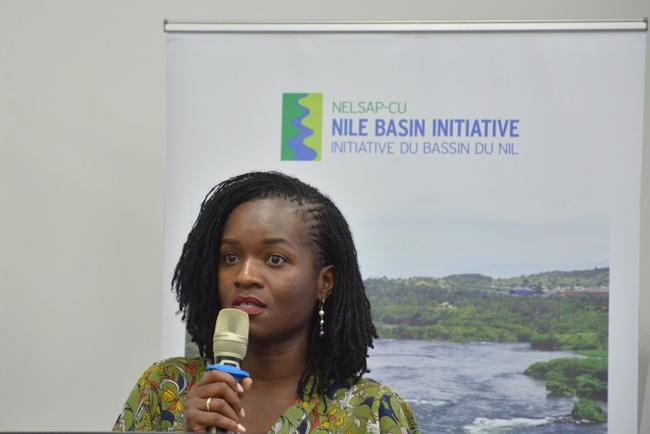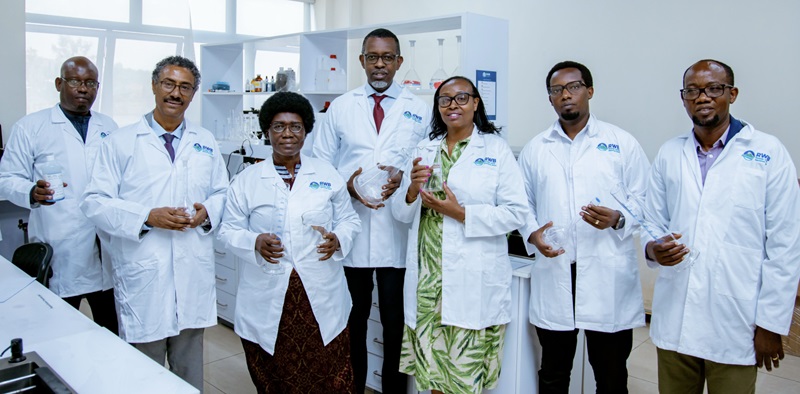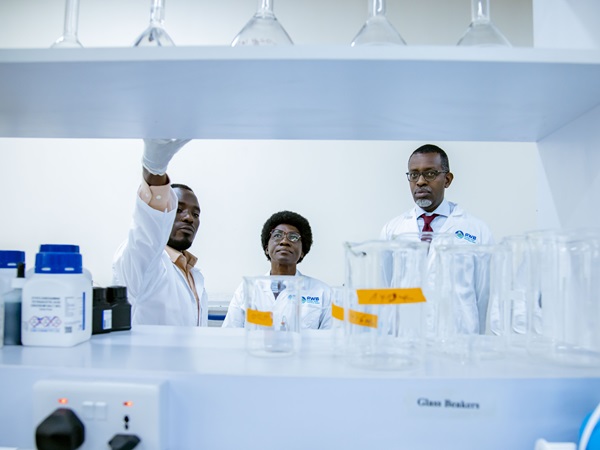As Climate Resilience Project Closes, World Bank Lauds NBI, Joins Partners to Refine Sustainability Plan

Successful implementation of the Nile Cooperation and Climate Resilience (NCCR) project strengthens NBI’s role as a key regional platform for climate action and transboundary water cooperation.
The World Bank’s 10th and final supervision mission of the Nile Cooperation and Climate Resilience (NCCR) project financed through Bank’s Cooperation in International Waters in Africa (CIWA) trust fund concluded in Kigali, Rwanda, on Thursday, 16 October, validating the tangible transboundary benefits that the Nile Basin Initiative (NBI) is delivering to its Member States.
The mission highlighted significant progress made by NBI in :
- Flash Flood Early Warning Systems
- Dam Safety Units and a regional dam database
- Strengthened water quality monitoring
- Capacity building and enhanced data sharing
The World Bank described NBI’s work on the flash flood early warning systems as “excellent” and “a great achievement”. Its results on institutionalised dam safety were, on the other hand, commended as a key example of “One NBI in action.”
High Completion Rates Reflect Strong Project Delivery
With 99 percent physical progress and 98 percent financial utilisation, the NCCR project stands as a regional model for effective implementation and impact.
“When we started, the idea was both ambitious and essential, to move from dialogue to joint action, from fragmented data to shared knowledge, and from national priorities to a basin perspective,” said Dr. Shyam K.C., World Bank NCCR project Task Team Leader.
“Today, as we reach the project’s closing chapter, we can take pride in what we have built together: regional analytical tools that guide climate-smart investments, platforms that foster trust and joint planning, and institutions that embody cooperation beyond project boundaries.”
The mission brought together the NBI Secretariat and the institution’s investment arms, NELSAP-CU and ENTRO, the Lake Victoria Basin Commission of the East African Commission, the Nile Basin Discourse, a civil society organization, and the World Bank to review project results and challenges, reflect on lessons learned, and discuss strategies to strengthen sustainability and country ownership. The NCCR was implemented by all the five partners
Climate Cooperation Remains Critical
The meeting was officially opened by Rwanda’s Minister for the Environment Dr Bernadette Arakwiye, who also chairs the Nile Equatorial Lakes Council of Ministers and serves on the Nile Council of Ministers.
The Minister commended NBI’s progress but emphasised that the journey toward climate resilience and equitable resource management is not yet complete.
“Continued partnership and long-term commitment are essential to consolidate the gains we have made and to propel us toward a sustainable future for all riparian countries. In light of the escalating risks posed by climate change, Nile cooperation remains a critical platform for coordinated action,” the Minister said.
NBI’s Role as a Neutral Platform for Cooperation
NBI Executive Director Dr. Florence Grace Adongo reaffirmed the Initiative’s unique role as the only impartial, basin-wide platform for dialogue and engagement, building trust and confidence among riparian states.
She highlighted how the NCCR project has advanced sustainable development while contributing to peace and security by fostering transparency, joint planning, and collaboration at both technical and political levels.
Appealing for a continued partnership with the Bank, Dr Florence said, “From the very beginning of NBI, the Nile Council of Ministers invited the World Bank to support Nile cooperation, an initiative well aligned with both the Bank’s global mandate and NBI’s strategic objectives,” said Dr. Florence.
“The challenges this initiative sought to address, namely poverty, environmental degradation, low socio-economic development, persist today, aggravated by the growing impacts of climate change and water pollution.”

Key Sustainability Challenges Identified
As the project closes, partners acknowledged the sustainability challenges that NBI must navigate to maintain its achievements. These include:
- Transitional institutional status
- Political instability in parts of the Nile Basin
- Financial fragility due to inconsistent country contributions and declining donor commitments
- Uneven technical capacity across member countries
A Strategic Path to Sustainability
NBI’s sustainability has outlined several strategic approaches to ensure the long-term sustainability of its work. These include:
1. Securing Financial Commitment from Member States
- Promoting regular country contributions
- Clearing outstanding arrears
- Encouraging greater ownership and commitment from member countries
2.Alignment with National and Regional Priorities
- Collaborating with national structures and expert working groups
- Ensuring NCCR outputs align with national development agendas and regional frameworks, such as those of the African Union
3.Diplomatic Engagement for Broader Participation
- Strengthening diplomatic efforts to encourage non-ratifying countries to join the Cooperative Framework Agreement (CFA)
- Promoting unified participation for collective progress
4.Raising Awareness and Promoting Use of NCCR Outputs
- Enhancing awareness of and access to NCCR tools
- Encouraging continuous use of products like the flood and drought early warning information system, which plays a critical role in protecting lives and property and strengthening disaster risk management
5.Ensuring Effective Use and Maintenance of Project Assets
- Working with member states to ensure assets such as water quality sensors and laboratory monitoring equipment are:
- Used appropriately
- Maintained in good working condition
- Upgraded as needed
6.Data Management for Transboundary Water Governance
- Overseeing data collection and storage
- Making data available to member countries for effective cross-border water management, particularly in areas like water quality
7.Transitioning into a Knowledge-Based Institution
- "NBI also envisions transforming into a fully-fledged knowledge agency, operating through a centre of excellence with a self-funding mechanism," said Dr Florence.
One of the biggest contributions of the NCCR is how it brought together different agencies to work together on common objectives, demonstrating the power of partnerships in addressing challenges of the Nile Basin. The Minister, Dr Arakwiye, commended this team-building result of the project.

